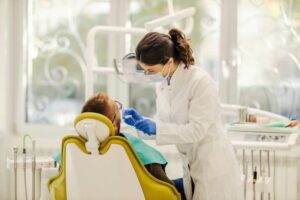
Some pet owners may assume that chewing on a crunchy kibble is enough to keep Fido’s teeth clean and healthy. Unfortunately, dental health in pets is often far more complex and requires regular professional care. So, every pet owner must understand the key signs of dental diseases in their four-legged friends.
A Closer Look at Pet Dental Health
Oral hygiene is an essential part of your pet’s overall health. Neglecting it can lead to problems such as periodontal disease, oral infections, and even serious systemic health issues. Hence, maintaining good oral hygiene for your pet goes beyond just providing clean water and crunchy kibble. It also encompasses routine dental check-ups and professional cleaning.
The Value of Routine Dental Examinations
Regular dental examinations are crucial to a pet’s overall healthcare regime. Veterinary professionals often recommend bi-annual check-ups, ideally once every six months. These regular dental check-ups allow veterinary professionals to detect and address prospective oral issues, preventing them from worsening into full-blown dental diseases. The following are as follows:
- Early Detection: Routine dental check-ups allow professionals to pick up on issues like cavities, tartar, and plaque early before they escalate into oral health problems, such as periodontal diseases.
- Prevents Bad Breath: Regular dental check-ups, accompanied by cleanings, can ensure that your pet has a fresh and clean mouth. This can help prevent halitosis (bad breath) which can be a sign of a more serious dental problem.
- Prevents Tooth Loss: During dental check-ups, vets can identify early symptoms of gum diseases that can lead to tooth loss. The earlier you detect such issues, the better you can prevent tooth loss.
- Pain Management: Many dental diseases can cause considerable discomfort to your pet. Periodic dental check-ups can help manage and reduce this pain.
- Control of Oral Infections: During an oral examination, vets can detect and treat oral infections and diseases promptly, preventing them from spreading to other organs like the liver and kidneys.
- Saving Costs: Regular dental exams can help spot and deal with potential problems before they become serious and require costly treatments or surgeries.
- Longevity: Good dental hygiene can increase your pet’s life expectancy. Unchecked dental diseases can progress and affect your pet’s overall health, shortening their lifespan.
- Monitoring Food and Chewing Habits: Regular check-ups can monitor changes in your pet’s chewing habits. An avoidance of crunchy food may be a sign of oral health disorders.
- Gauging General Health: The mouth is a window into the pet’s overall health. Many systemic diseases have oral indicators, making dental examination vital in detecting symptoms of brewing diseases.
- Comfort: A pet with clean, healthy teeth and gums will be more comfortable, happier and likely more active and outgoing. Regular dental check-ups ensure that any discomfort caused by oral disease will be washed away, leaving only bright smiles and happy pets.
Pet Dentistry
This is where pet dentistry comes in. It’s not just about inspecting your dog or cat’s teeth; it’s also about catching dental issues early. For instance, services offered at https://www.oakglenanimalhospital.com/site/veterinary-services-yucaipa/dentistry can provide a full range of dental care, from simple cleanings to complex extractions.
Spotting Early Warning Signs
So, how do you know when your pet has a potential dental problem? There are many signs to look out for, such as tartar buildup, gum inflammation, and loose teeth. For instance, your pet’s breath might give you a clue about its dental health. Yes, no one expects a pet’s breath to smell like roses, but certainly not like something crawled up there and died. Bad breath can be one of the earliest signs of dental disease.
Pet Parasite Prevention
Preventing parasites is also an essential aspect of pet health. Parasites can cause various diseases, including some that can seriously affect your pet’s dental health. Regular parasite screenings and preventive medications can ensure your pet stays disease-free. Refer to reliable online resources or consult your local veterinarian to find out more. There are many interactive tools and checklists available online that can help you identify preventative measures based on your pet’s lifestyle and geographical location.
Logistics: Treatment and Prevention
Thankfully, you can substantially reduce your pet’s risk of getting dental disease by implementing preventive measures such as brushing their teeth, providing them with dental-friendly toys and food, and visiting the vet for regular dental check-ups. The vet might suggest regular cleanings, x-rays, extractions, or other procedures based on your pet’s dental health.
Pet Surgical Services
In some cases, comprehensive dental care for some pets may require surgery. For instance, if your pet has advanced periodontal disease, broken teeth, or oral tumors, these are conditions where pet surgery might be necessary.
Conclusion
In conclusion, as a responsible pet owner, the well-being of your pets should be a priority, including their dental health. Always watch those signs and don’t delay the visits to a professional. Dentistry for pets isn’t just about clean, sparkly teeth. At its core, it’s about preventing disease and prolonging your pet’s life. Therefore, knowing the key signs of dental diseases could save your pet’s life, so be vigilant and proactive.








